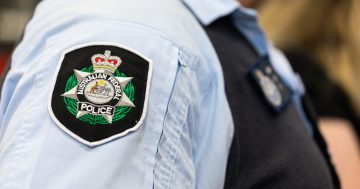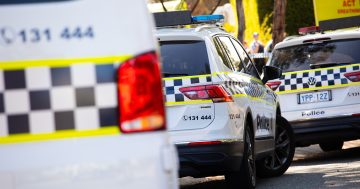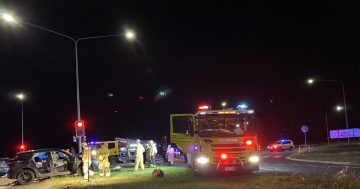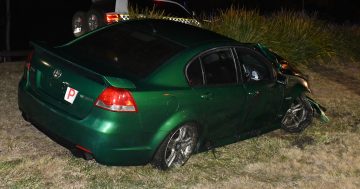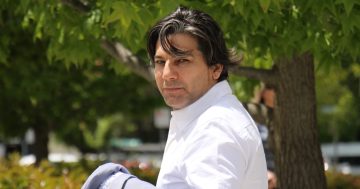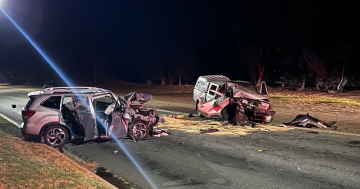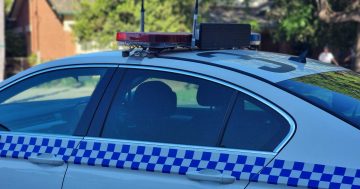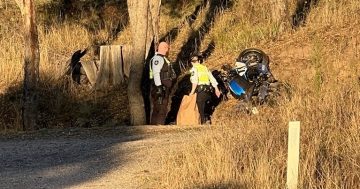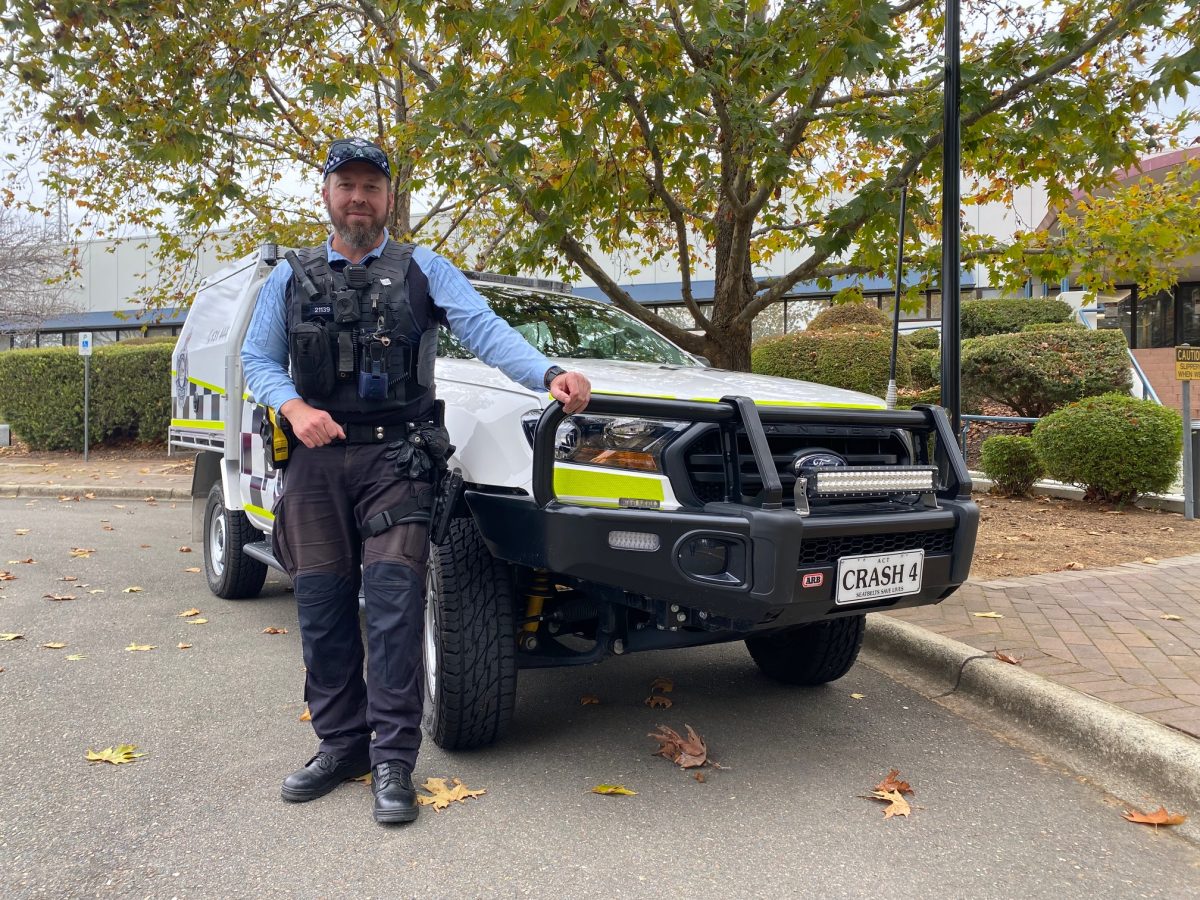
Major Collision Team Acting Sergeant Will Stevenson investigates road trauma across Canberra. Photo: Claire Fenwicke.
Losing a loved one in a car crash is a traumatic event and its impact on a person’s family and friends is beyond description – but it also has a ripple effect beyond that person’s immediate circle.
Ten people have died on Canberra’s roads already this year and Major Collision Team Acting Sergeant Will Stevenson has probably been involved in each investigation.
Even though he’s served with police for 11 years, he can still remember the first serious crash he had to attend.
“You draw parallels to your own life, everyone does that, whether you’re in the police or not,” Act Sgt Stevenson said.
“Every human has that ability to have empathy for others.”
He described the “plethora” of people involved, from police who might have to investigate serious and fatal incidents regularly to those who would never expect they would have to witness such an event.
“Some people have been around this regularly and are quite understanding of what work is ahead of them,” Act Sgt Stevenson said.
“But then you might have, say, a young apprentice for an electrical company who needs to shut off the power [because a vehicle has hit a light pole or a transformer]. They do sometimes see [the crash and injured people] first-hand as the rescue can take hours, it can take two to four hours to stabilise people in a vehicle and work out the best way to get them out.
“I remember one apprentice asked me ‘how close am I going to be to the vehicle, am I going to see this?’ That was eye-opening to me. I kept my response measured, for him to see me calm reassured him that we would both get through this.”
First responders in police, fire and ambulance only form part of the human involvement in a traumatic car crash. There are also the initial witnesses, and usually there are off-duty nurses who have stopped to help.
“The majority of crashes, nurses are there. So many stop straight away, my hat tips to them,” Act Sgt Stevenson said.
Once a scene has been “completed” other ancillary services become involved. If there are road closures, Action Buses assist in redirecting bus services, a clean up team is deployed from ACT City Services. If “road furniture” such as a railing or light pole was damaged, relevant power grid authorities are called.
“There is a vast array of responses, external and internal, that have an interest,” Act Sgt Stevenson said.
“Sometimes a minister’s office has to be notified if a person of political importance is involved, plus the media is also a huge factor for all officers.”
Then there’s the “spectacle” around the crash, which is one aspect Act Sgt Stevenson found could drastically increase the amount of trauma felt by a crash victim’s family and friends.
“Sometimes a family finds out about the death of a loved one via social media, it’s not unusual to find the family at the scene,” Act Sgt Stevenson.
“It’s such life-changing information, personally I wouldn’t want to hear about it on the grapevine, the way it is delivered has such a meaningful effect.
“You should receive something like that with a solemn attitude and all the information possible.”
Act Sgt Stevenson said police support services were available not just for a crash victim’s family and friends, but also for witnesses directly involved in the incident.
“Any family members of direct witnesses, I give them my card and information on what kind of behaviours they could expect to see from the witness,” he said.
“They don’t know or have the tools to approach a loved one who saw something like this.”
He explained trauma manifested in different ways and its impact was something very few people could escape.
“Everyone can act stoic in the moment and say ‘I’m fine’,” Act Sgt Stevenson said.
“But you may find someone becomes more reclusive, their behaviour changes, they get snappy.”
While some people decline support at the time, Act Sgt Stevenson said policing didn’t have “core hours” and that personally his door was always open.
“If I can give 10 minutes, half an hour to someone, to alleviate their trauma, I’m more than happy to deal with it,” he said.
“You don’t have to say yes [to extra support] at the time, but if you do say yes, that can get things moving in the background, so when we get in touch later you can again decide yes or no.”
He also suggested those involved in a crash and their loved ones stay away from social media.
“Take everything you see on social media with a grain of salt, most of the time they weren’t there, they don’t know,” Act Sgt Stevenson said.
“A narrative can take control online, then that becomes the truth in everyone’s mind, it’s just perplexing.
“If you want to know something or want something out there, go to your case officer.”
The impact of trauma on first responders was also something front and centre, with strategies in place to protect officers.
“Once upon a time, the quintessential trauma response was dealt with in a dark room with some whiskey, but people are now asked to speak out,” Act Sgt Stevenson said.
Officers are debriefed with team leaders, while ACT Policing introduced its SHIELD program about two years ago to provide mental, physical and psychological support to members of the force.
“It also comes down to peer to peer support, we monitor each other, we know when something’s left of centre,” Act Sgt Stevenson said.
“We also have a chaplain service, if you’re religious or not, they’re always great for hugs.”
Most of all, Act Sgt Stevenson wanted to stress that there was no shame in anyone reacting negatively to trauma and needing to speak out, whether that person was a seasoned officer or a witness.
“We don’t have a superhuman ability to address the chaos, you will have those [trauma] responses,” Act Sgt Stevenson said.
“We’re all people.”
If you need crisis support contact Triple Zero or Lifeline on 13 11 14.












